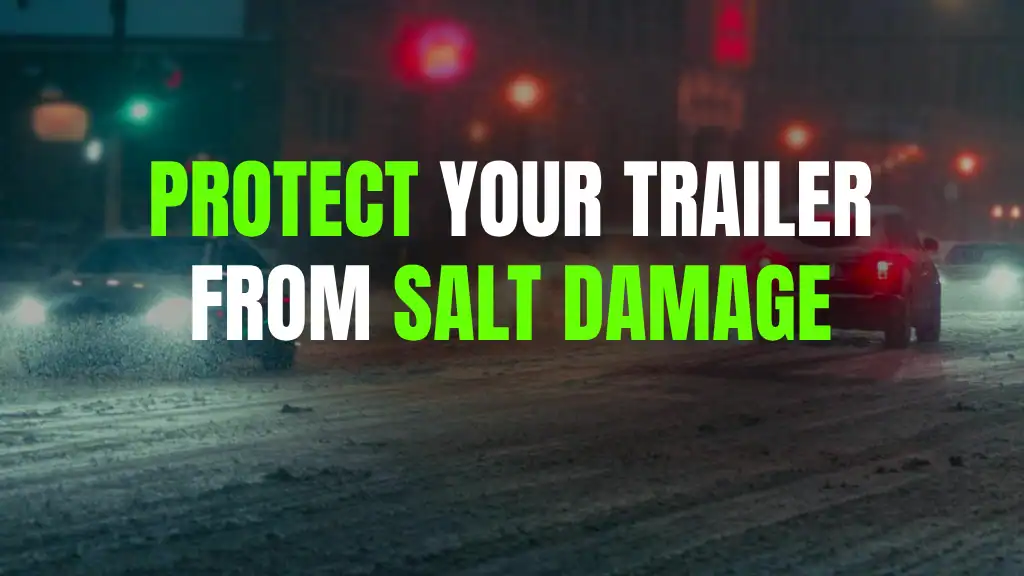Popular Searches:
Displaying top search terms based on the last 90 days.
Popular Searches:
Displaying top search terms based on the last 90 days.

If you live or work in Pennsylvania, you already know what winters are like: snow, ice, slush, and road salt. Lots and lots of salt. Road crews do what they have to do to keep highways safe, but there’s a hidden cost most trailer owners don’t think about until it’s too late.
That cost? Rust.
Salt is one of the most corrosive substances your trailer frame will ever face. If you’re hauling equipment, materials, or goods in the Northeast, your trailer spends months every year driving through or sitting on salty roads. And while you may wash your truck, your trailer frame is often the last thing to get attention.
Salt lowers the freezing point of water, which helps keep roads from icing over. But when salt mixes with moisture (like melted snow or slush), it creates a salty brine that clings to metal surfaces. That brine eats away at steel, attacking joints, welds, bolts, and frames. Even powder-coated trailers or painted frames can suffer once salt finds an exposed spot.
This kind of corrosion doesn’t just make your trailer look bad, it weakens the frame, shortens its lifespan, and hurts resale value.
Here are the best ways to prevent rust and corrosion from destroying your investment:
Steel trailers are rugged and strong, but in PA winters, they’re especially vulnerable. Aluminum trailers cost more upfront but offer major long-term advantages in salty environments. They resist rust, stay lighter, and need less maintenance over time. If you’re running a fleet or using your trailer daily, that trade-off might be worth it.
If you’re not ready to switch to aluminum entirely, ask about galvanized options or hybrid builds that include aluminum decks with steel frames. Check out this article we published for more information on aluminum vs steel trailers.
Every spring, we see the same thing in our shop: trailers with rotted brake lines, crumbling welds, rusted crossmembers, and failed electrical connections. And most of it could’ve been prevented with a little more salt protection.
If you’re unsure how your trailer is holding up, stop by. We can inspect your frame and let you know where it stands and how to make it last longer.
Most protective coatings should be reapplied at least once per season, especially if your trailer sees daily use on salted roads. In harsher conditions, a mid-season reapplication may be necessary.
Yes, in many cases you can. Aluminum flatbeds can be fitted to older trucks, but it’s important to assess the condition of the steel frame to ensure it’s not compromised by rust before installation.
Yes. Look for salt-neutralizing soaps and degreasers designed for automotive or marine use. These products break down the salt residue more effectively than standard car wash soaps.
Look for bubbling or flaking paint, orange-brown discoloration around bolts or welds, and visible rust on brake lines, wiring, or undercarriage components. Trailer lights flickering or failing can also be a symptom of hidden corrosion.
Not necessarily. While enclosed trailers protect cargo, their frames and undercarriages are still exposed to salt and brine. It’s equally important to wash and protect them just like open-frame trailers.